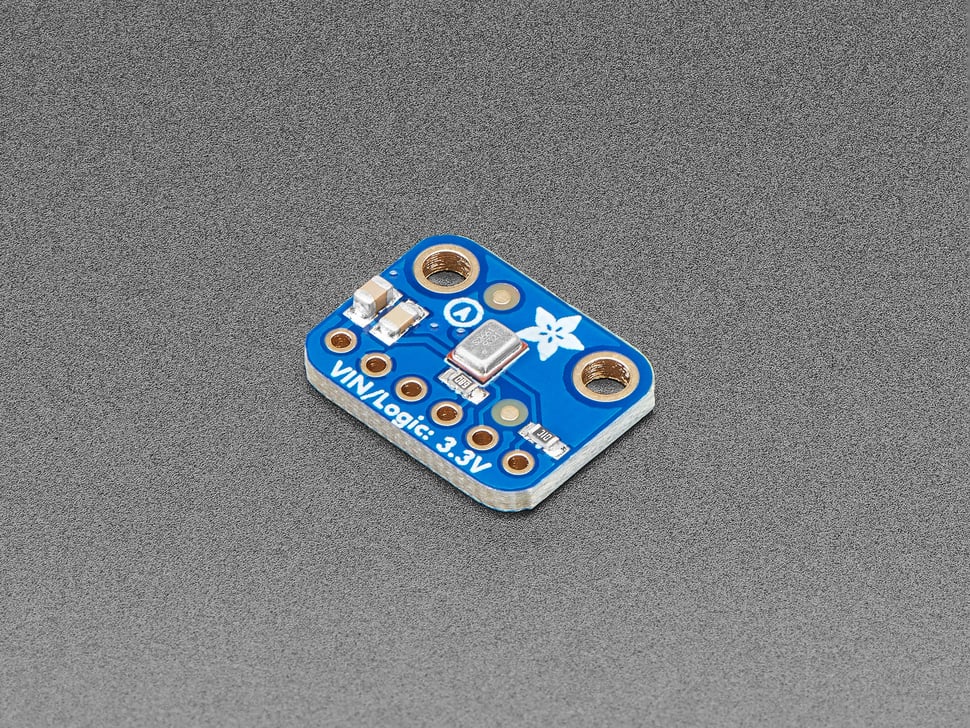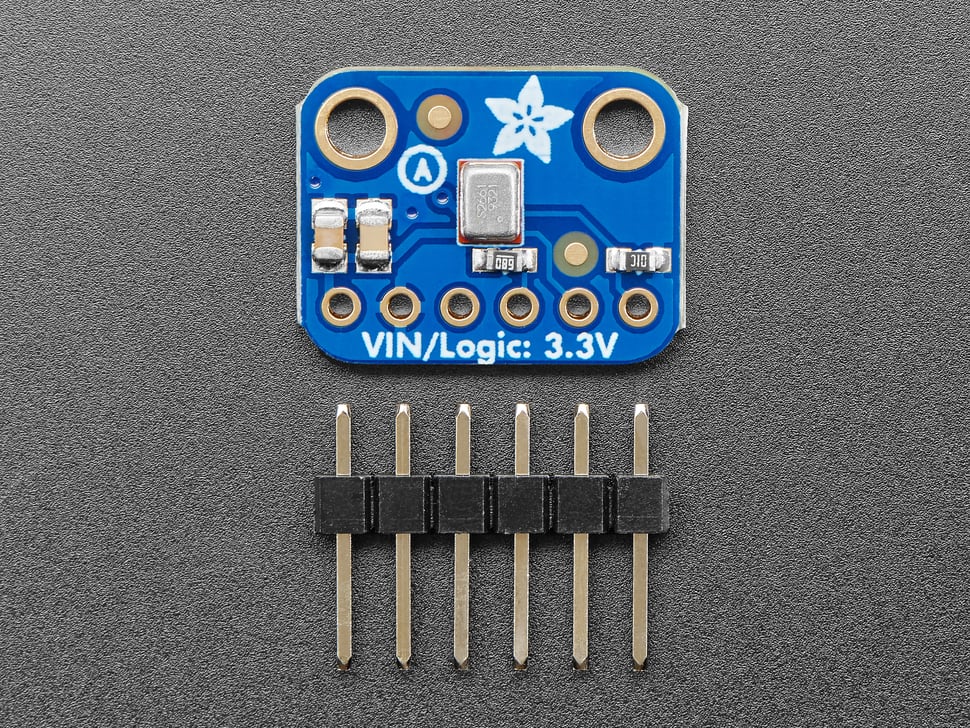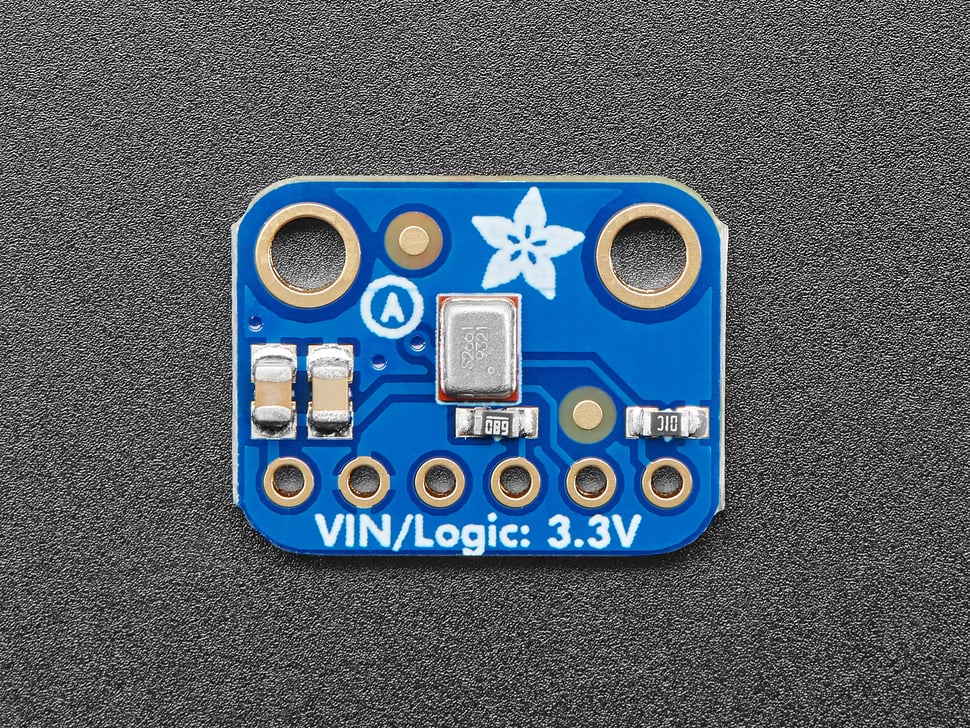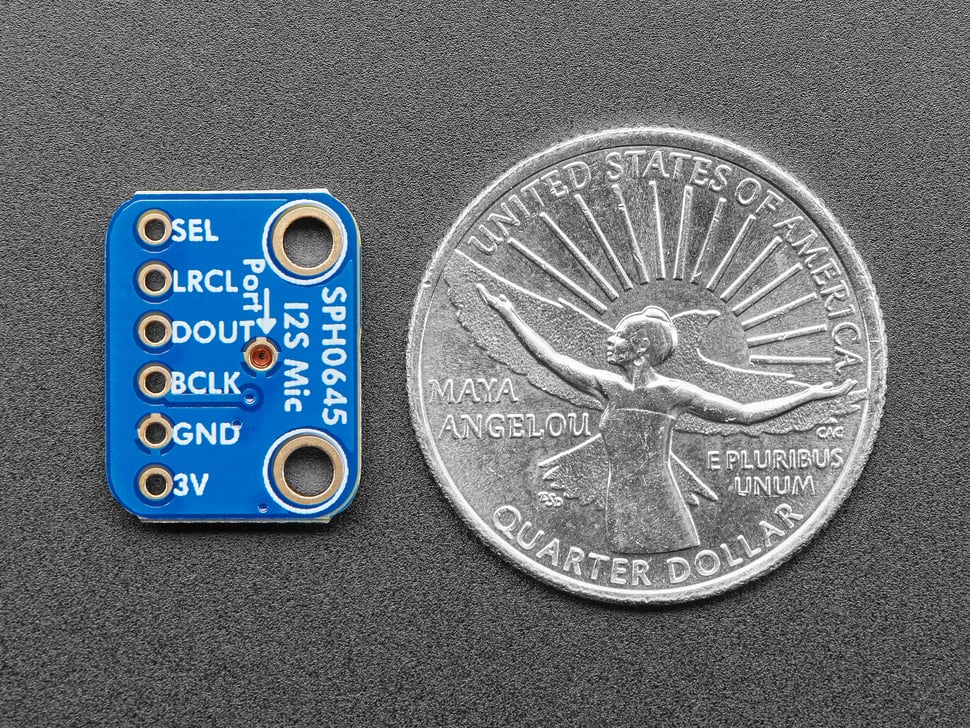Adafruit I2S MEMS Microphone Breakout - SPH0645LM4H
Adafruit I2S MEMS Microphone Breakout - SPH0645LM4H is backordered and will ship as soon as it is back in stock.
Delivery and Shipping
Delivery and Shipping
Delivery Options
We offer several delivery choices to fit your needs:
- FREE Delivery: $0. Enjoy Free AusPost Parcel Standard Delivery on orders over $100 in value. Exclusions may apply.
- AusPost Untracked Letter: $3. Delivery in 3-8 business days (untracked). No refunds or replacements without proof of receiving the order.
- AusPost Parcel Standard: $9. Tracked delivery in 2-6 business days.
- AusPost Parcel Express: $13. Express tracked delivery in 1-3 business days.
- Pickup: $0. Email us to arrange a pickup from our location in Huntingdale 3166 in Melbourne at support@zaitronics.com.au. More details can be found in our contact page.
Additional Information
- Non-metro addresses in WA, NT, SA & TAS may require extra time.
- Certain batteries (like LiPo) cannot be shipped by air, affecting Express Post availability.
- We recommend selecting tracked options for valuable items. Untracked orders will not receive tracking numbers or refunds without proof of delivery.
- Note: Wherever possible, we will combine orders to save on shipping and reduce packaging waste.
- Note: Orders containing backordered item will delay delivery until all items are available
Warranty & Refund Policy
Warranty & Refund Policy
Warranty & Refund Policy
- Standard Warranty: 12 months for all products. Low-cost hobby parts have a 90-day warranty unless safe handling is shown.
- Exceptions: Kits and interfaceable electronics may not be covered if damaged due to misuse.
- Returns: Contact support via your order confirmation email within 14 days of purchase. Items must be unopened and in original packaging. Proof of purchase is required.
- Defective/Damaged Items: Notify us within 30 days for a free refund or replacement. Exclusions apply.
- Return Shipping Costs: Paid by the customer unless the item is defective. Shipping costs are non-refundable.
Listen to this good news - we now have a breakout board for a super tiny I2S MEMS microphone. Just like 'classic' electret microphones, MEMS mics can detect sound and convert it to voltage, but they're way smaller and thinner. This microphone doesn't even have analog out, it's purely digital. The I2S is a small, low-cost MEMS mic with a range of about 50Hz - 15KHz, good for just about all general audio recording/detection.
For many microcontrollers, adding audio input is easy with one of our analog microphone breakouts. But as you get to bigger and better microcontrollers and microcomputers, you'll find that you don't always have an analog input, or maybe you want to avoid the noise that can seep in with an analog mic system. Once you get past 8-bit micros, you will often find an I2S peripheral, that can take digital audio data in! That's where this I2S Microphone Breakout comes in.
Instead of an analog output, there are three digital pins: Clock, Data, and Left-Right (Word Select) Clock. When connected to your microcontroller/computer, the 'I2S Controller' will drive the clock and word-select pins at a high frequency and read out the data from the microphone. No analog conversion required!
The microphone is a single mono element. You can select whether you want it to be on the Left or Right channel by connecting the Select pin to power or ground. If you need stereo, pick up two microphones! You can set them up to be stereo by sharing the Clock, WS, and Data lines but having one with Select to ground, and one with Select to high voltage.
This I2S MEMS microphone is bottom ported, so make sure you have the hole in the bottom facing out towards the sounds you want to read. It's a 1.6-3.6V max device only, so not for use with 5V logic (it's really unlikely you'd have a 5V-logic device with I2S anyways). Many beginner microcontroller boards don't have I2S, so make sure it's a supported interface before you try to wire it up! This microphone is best used with Cortex M-series chips like the Arduino Zero, Feather M0, or single-board computers like the Raspberry Pi.
For code, libraries, wiring examples, CAD files, Fritzing, and more, check out the guide!








